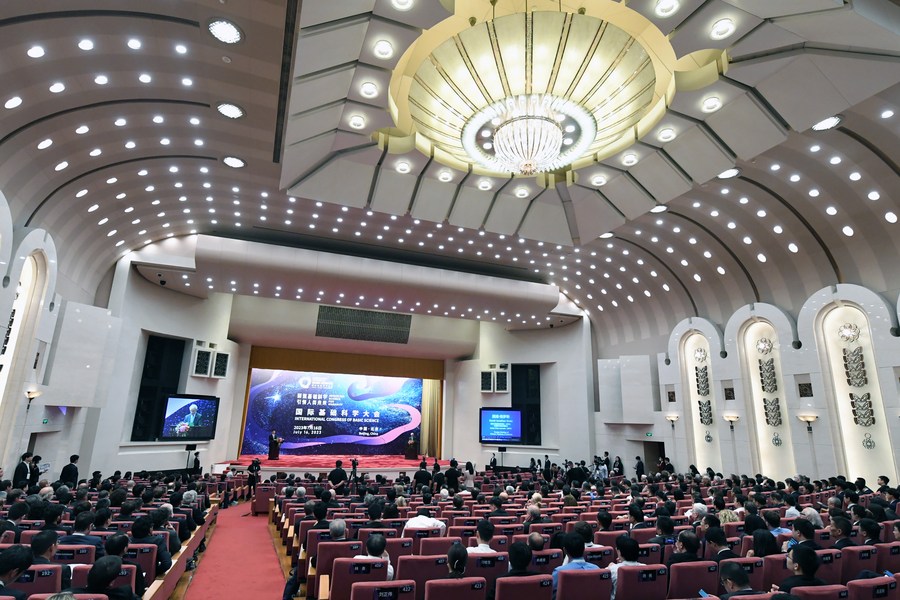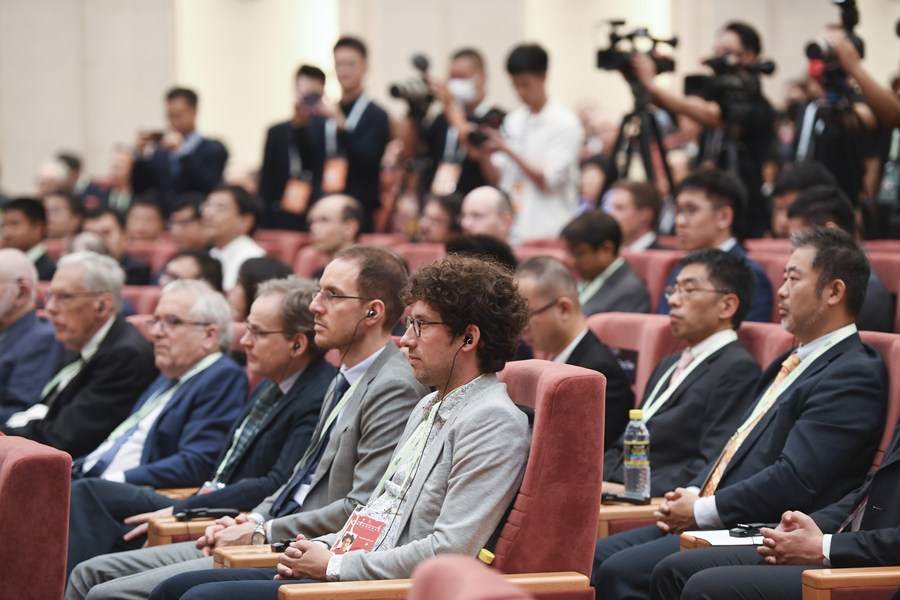China Focus: Int'l conference aims to boost dialogue, exchanges on basic science

This photo taken on July 16, 2023 shows the opening ceremony of the International Congress of Basic Science (ICBS) in Beijing, capital of China.(Xinhua/Ren Chao)
BEIJING, July 18 (Xinhua) -- The International Congress of Basic Science (ICBS) inaugurated in Beijing on Sunday has brought more than 800 scientists from home and abroad for in-depth discussions on cutting-edge achievements in the field of basic science, while looking ahead to future developments.
The event will run from Sunday to July 28, focusing on three branches of basic science: mathematics, theoretical physics, and theoretical computer and information sciences, according to the event's organizer.
"I hope that the conference will become an important bridge between China and the world in the field of scientific and technological exchanges, so that internationally renowned scholars can enhance their understanding of China," said world-renowned mathematician Shing-Tung Yau, also chairman of the ICBS. "I also hope that young scholars and students will actively communicate with world-class scholars so as to set clear goals."
Basic scientific research is the source of the whole scientific system, and developing pioneering basic research is the key to achieving original and significant achievements while promoting technological progress. At this congress, many scientists emphasized the importance of basic science and the necessity of attaching importance to basic science.
Prof. David Gross from the United States, who is a Nobel laureate in Physics, said, "Basic science, or more precisely 'curiosity driven' science, is essential; not just to satisfy our curiosity about the nature of matter and the structure and history of the universe, but also to make truly great discoveries and advances in knowledge that inevitably lead to new technologies."
He said, "I am very happy to be back in China and pleased to see the increased commitment of the Chinese government to the support of the basic sciences," adding that different countries should communicate and collaborate so as to solve the problems facing humanity, including climate change, environmental pollution, diminishing natural resources, and so on.

Participants attend the opening ceremony of the International Congress of Basic Science (ICBS) in Beijing, capital of China, on July 16, 2023.(Xinhua/Ju Huanzong)
Prof. David Mumford from Harvard University and Brown University in the United States said, "It is truly wonderful to have an international meeting in China."
He added that the ICBS continues the tradition of international cooperation, bringing together scientists from all over the world in the fields of mathematics, physics and computer science, and promoting international cooperation in the field of basic science.
Shing-Tung Yau said, "Basic science is the cornerstone of human knowledge. It is our significant pathway to understand the world, reveal nature, explore the universe, and drive scientific and technological progress. More importantly, we need to recognize that basic science is a powerful force leading humanity's future and promoting social progress."
The congress, featuring more than 500 lectures, satellite meetings and engaging exchange events, aims to provide a robust platform for scholars globally to communicate, establish partnerships and engage in interdisciplinary dialogue, with the ultimate goal of advancing science for the betterment of humanity. It also seeks to raise the profile of basic sciences and inspire the next generation of young researchers and students.
Outstanding undergraduate and graduate students and postdoctoral fellows specializing in relevant fields from various universities in China will have the opportunity to showcase their research findings. Youth groups and other individuals passionate about and supportive of science development have also been invited, providing valuable opportunities for dialogue and interaction with top international scientists.


